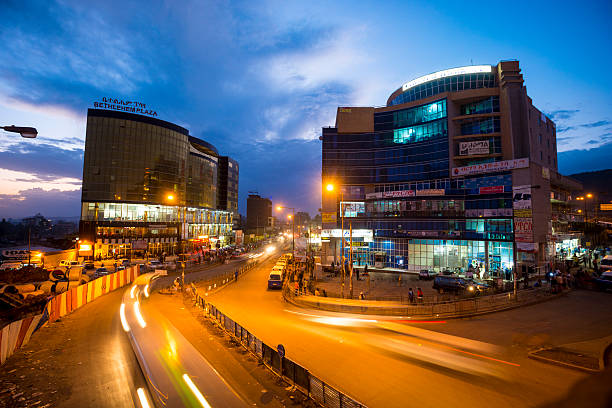The fact that so many African nations, notably Cameroon, Chad, Nigeria, and Somalia, seem to be in crisis and may not feature in the list of the richest countries in Africa.
They are struggling with terrorist insurgencies or with one another, which adds to the economic pressure on these nations.
Despite these difficulties, the 54 countries that make up Africa have some of the world’s fastest-growing economies.
In fact, by 2050, it is anticipated that the African economy, driven by its commerce, agricultural, and natural resource sectors, will have a GDP of $29 trillion.
Twenty million job seekers are added to the region’s workforce each year, with the population of sub-Saharan Africa alone.
In terms of technology, Africans are beginning to keep pace with the rest of the world: Each day, more than 90,000 people in sub-Saharan Africa use the web for the first time.
Still, even the wealthiest and most powerful African nations are far behind the world’s richest countries, making Africa the least developed of the major continents.
Despite this, Africa has undeniably considerable potential.
READ ALSO:
10 Richest Countries in Africa
The Top 10 Richest Countries in Africa include the most affluent nations and those that have successfully pooled their natural resources for the benefit of their people. They include:
1. Egypt
Egypt is endowed with rich natural resources, including crude oil, petroleum, natural gas, phosphorus, and more. However, Egypt has a robust economy, good agriculture, fossil fuels, and other sectors that contribute to raising their GDP per capita.
It is one of the most populous nations in Africa, with 102.3 million people. Located in the northeast of Africa, it was formerly known as the Arab Republic of Egypt.
With a GDP of $1.38 trillion, Egypt has the most robust economic system in Africa at the moment and is also the wealthiest nation there.
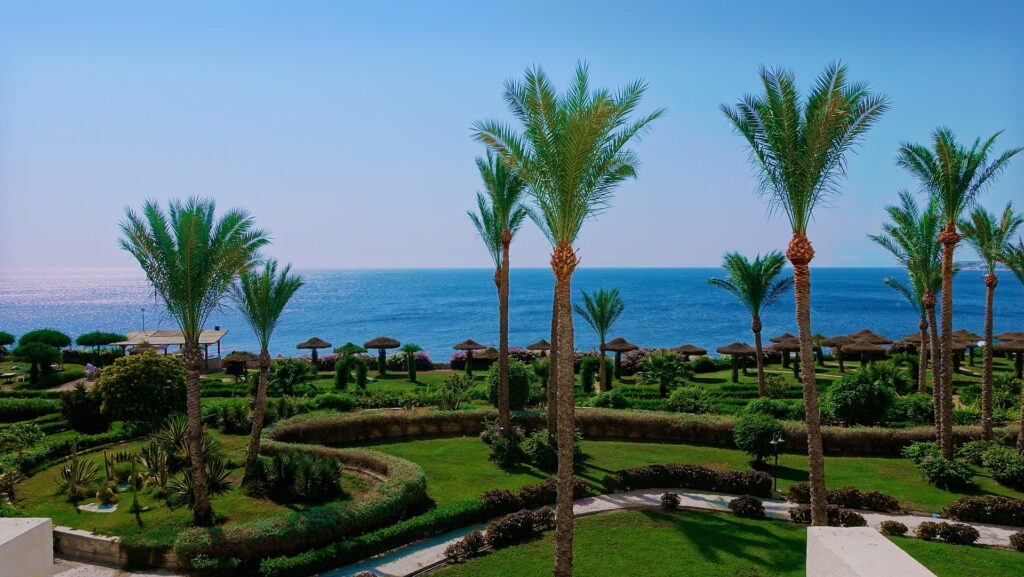
Economic activity has risen and steadied during the past ten years, leading to substantial economic development.
Recently, the government and IMF finished a set of economic reforms to enhance and bolster the economy.
From 5.3% in 2018, real GDP growth improved to 5.6% in 2019. The nation’s economy has grown, and unemployment has dropped.
READ ALSO: Top 10 Richest Fuji Musicians in Nigeria
2. Nigeria
With a $1.14 trillion GDP, Nigeria ranks second among the top 10 richest countries in Africa.
However, Nigeria’s commercially critical natural resources have propelled them to the top of the list of the richest nations in Africa.
These include crude oil, limestone, iron and steel, gas, gold, bitumen, tin, coal, and fertile land in Nigeria.
Nigeria now has the largest economy in Africa and the largest economy on the whole continent.
Nigeria has a population of over 200 million, making it one of the most populous nations in Africa. However, this has little impact on the country’s economy.
According to the World Bank, Nigeria’s GDP grew 7% per year between 2000 and 2014, making it one of Africa’s quickest economies.
This has fallen to little more than 2% in the past decade due to political upheaval, socio-economic problems, and shocks in the oil and production industries.
The government has prioritized protecting its natural resources to reduce its reliance on oil refineries and industrial plants.
Despite being the second-richest nation in Africa, Nigeria has long suffered from political unrest, natural disasters, and military warfare.

READ ALSO: Top 10 Richest Musicians in Africa in 2023
3. South Africa
South Africa, with a GDP PER CAPITA of $861.93, is third among the Richest Countries in Africa. Iron ore, manganese, uranium, platinum, chromium, copper, silver, titanium, and beryllium are just a few natural resources in South Africa.
The nation has the most influential economic system, with gold mining — dominating the sector. Sasol in South Africa is one of the biggest oil companies in sub-Saharan Africa.
The nation highly values tourism as a generator of revenue since it is widely known as a well-liked vacation spot on a global scale.
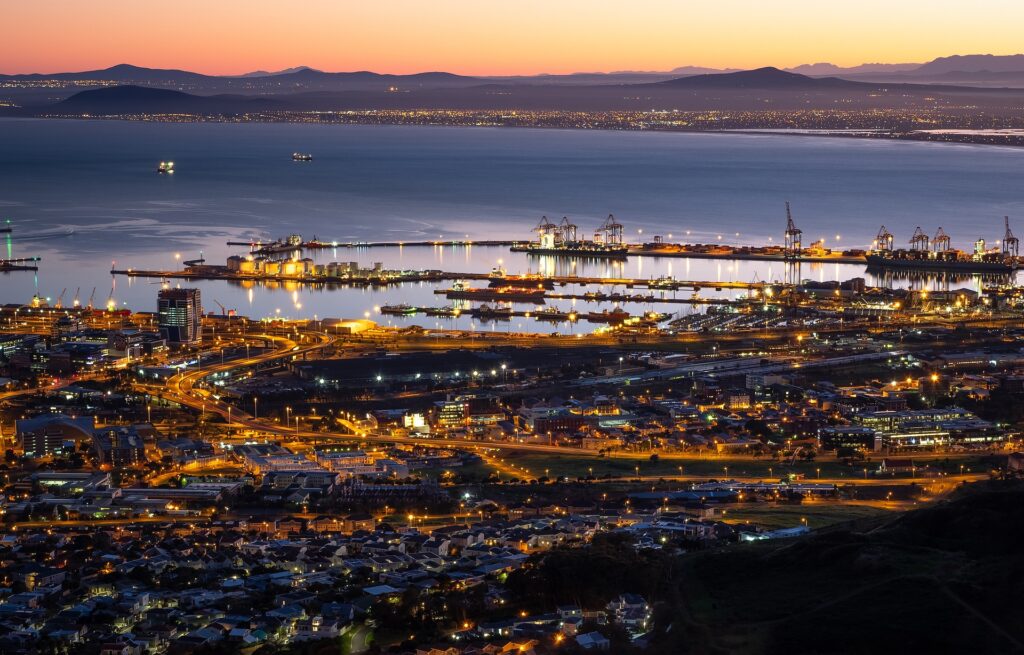
However, its ability to reach its full potential has been impeded by political and global instability.
The nation was thrown into an economic downturn after four quarters of negative GDP growth in 2019 slowed to only 0.2%. South Africa has seen unprecedented levels of inequality.
And despite being one of the wealthiest nations in the world, South Africa nevertheless struggles with poverty and high unemployment. Thirty percent of South Africa’s 59.31 million inhabitants live in poverty.
READ ALSO: History of the Yoruba People: A Rich Tapestry of Culture
4. Algeria
Known as the People’s Democratic Republic of Algeria, Algeria is among the Richest Countries in Africa. The country possesses abundant natural resources, namely helium, iron, zinc, lead, silicon, and solar energy.
With a GDP per capita of $532.57 billion, Algeria has some of the world’s most established gas resources. There are currently 43.85 million people living there, and there are problems with the outside world.
Other sectors of Algeria’s economy include construction, commercial services, industrial activity, and agriculture. The nation is also a significant supplier of ammonia to Africa.
However, it is essential to note that the country’s foreign exchange reserves have shrunk due to the current oil price drop. Politico-economic unrest in Algeria has also hindered the country’s economic expansion.

READ ALSO: Top 10 Richest Cricketer in the World
5. Morocco
Morocco is yet another nation that ranks in the Top 10 Richest Countries in Africa. It is estimated to have 37 million residents in the region by 2022. Morocco, one of the Richest Countries in Africa, is listed among those whose annual GDP is reviewed. Its GDP is $302.77 billion.
Copper, silver, manganese, fluorine, Iron, zinc, lead, salt, cobalt, and gold are among the natural resources found in Morocco. Mining and industry make up the bulk of the nation’s economy. Moroccan GDP comprises 55% services, 30% industry, and 15% agriculture.
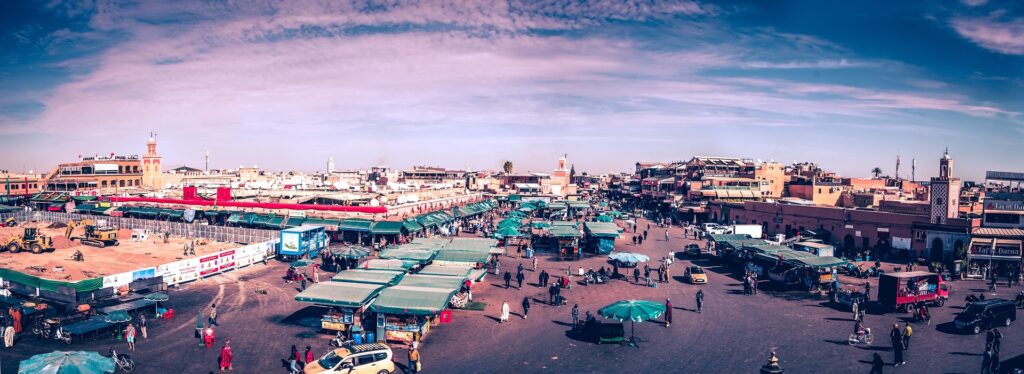
This is made more accessible by the growing tourism sector, where locals gladly welcome travelers, and the government strongly emphasizes drawing people to the nation’s well-known attractions.
This country is the third-largest generator of phosphorus in the world, with its primary industry being agriculture.
The nation has significantly benefited from its varied exports, which also include, among several other things, electrical equipment, cars, and auto components. The textile and telecom sectors both significantly contribute to the economy.
READ ALSO: Top 10 Richest Yahoo boys in Nigeria (2023)
6. Ethiopia
Ethiopia, with its 115.57 million people and $298.57 million GDP per capita, is one of the Richest Countries in Africa.
It has some rich natural resources and is one of the most populous nations in Africa. Gas, gold, copper, platinum, potassium, and native animals are a few of the natural resources found in Ethiopia.
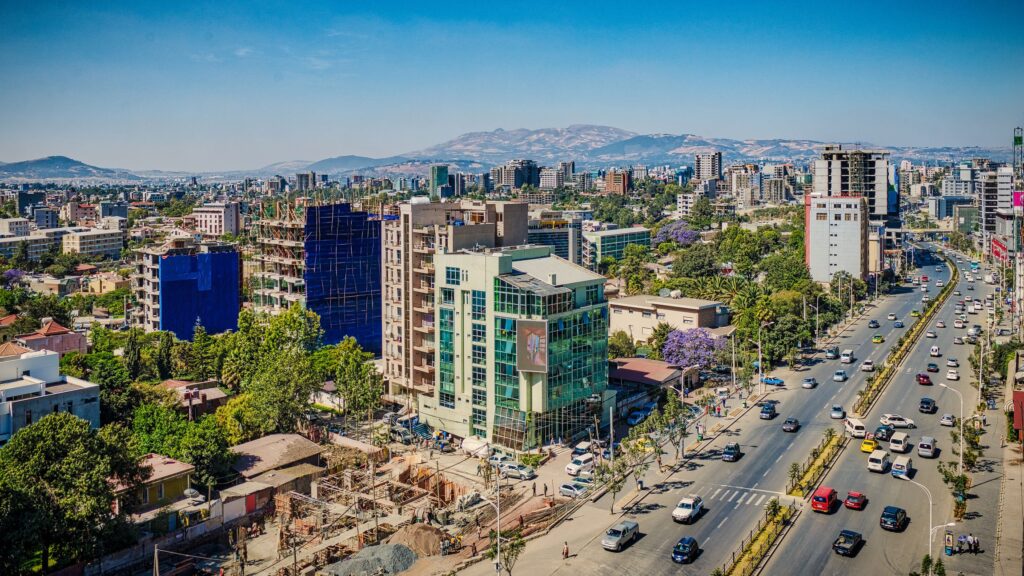
Among the economic systems in the region, Ethiopia is thought to be one with the quickest rate of expansion. The issue of internal tensions, however, is one that the nation is dealing with.
READ ALSO: Who is the Richest Igbo Gospel Musician in Nigeria?
7. Kenya
With a national population of 53.77 million, Kenya has a per capita GDP of $269.29. They are one of the nations with the highest levels of economic growth and development and mineral resource development.
Mineral wealth in the nation not only makes people wealthy but also ensures their survival. Among these minerals are those used to produce zinc, soda ash, salt, limestone, jewels, gypsum, fluorspar, diatomite, hydropower, gasoline, and mineral resources.
Kenya’s seashore has long been a vital port for traders from Asia and the Arabian Peninsula, turning it into a continental commercial dominant force.
Kenya’s economy is expanding in several ways despite not being heavily dependent on oil like many other nations on our list. One of the strongest economies in Sub-Saharan Africa in 2019, Kenya’s GDP increased by 5.7%.

READ ALSO: Check Out Top 10 Richest Female Artistes in Nigeria
8. Angola
The second-largest oil producer in Sub-Saharan Africa is Angola. The primary sources of revenue for the nation are mining and the production and distribution of crude oil.
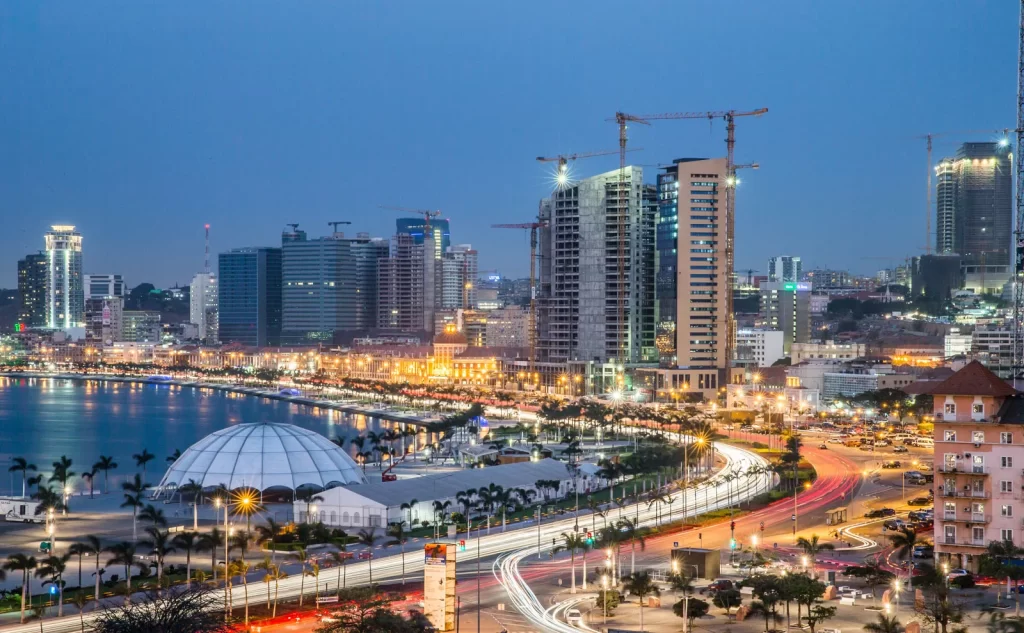
Angola is one of the least developed nations, although it has a populace of 32.87 million, yet it is nevertheless abundant in mineral resources. A few of Angola’s mineral wealth are copper, manganese, gold, phosphorus, uranium, feldspar, and platinum.
READ ALSO: Best 10+ Cutest Boy in the World:
9. Ghana
Ghana is one of the wealthiest nations in the world, and its population puts a lot of effort into making their nation better. The economy of Ghana is diverse and resourceful. It is one of the wealthiest nations on the African continent, with a GDP of more than $72 billion.
The nation has drawn foreign investment and expanded slightly over 6% over the previous two years due to its generally favorable economic climate.
Roughly a third of Ghana’s workforce is employed in services, making nearly half of the country’s GDP. The industry is the second-largest contributor to GDP after agriculture, contributing just under 25%.
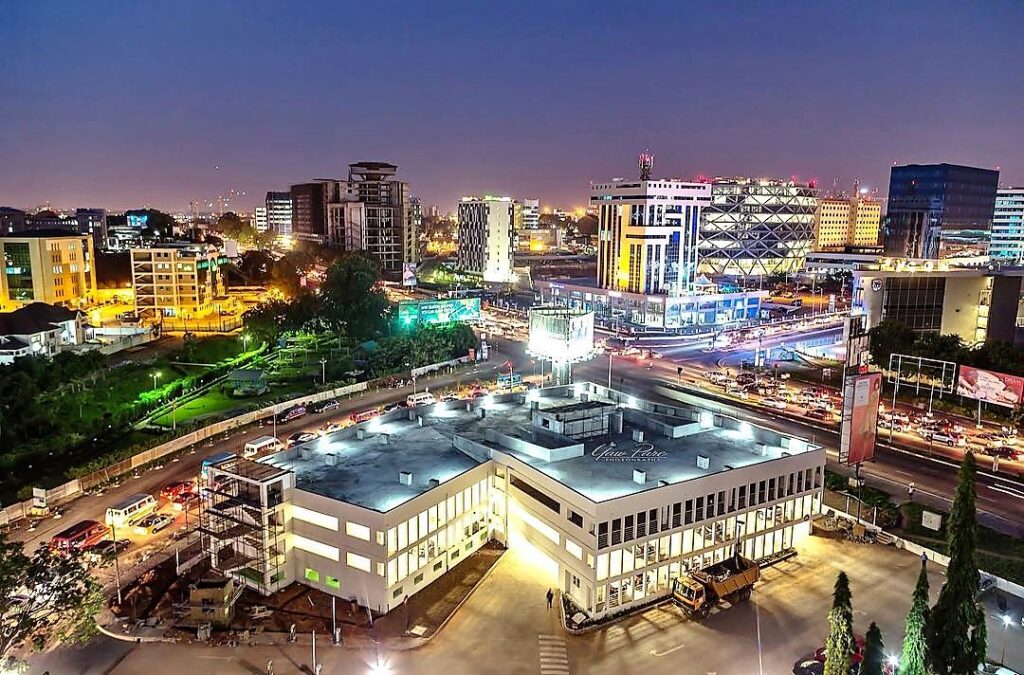
Natural resource wealth in Ghana has facilitated the nation’s economic growth. The nation’s principal export is gold. Petroleum follows, with half of the nation’s foreign cash coming from it. A few other essential exports are gold, timber, and cocoa beans.
READ ALSO: Top 10 Most Powerful Countries in the World
10. Sudan
Sudan, formally the Sudanese Republic, completes the Top 10 Richest Countries in Africa list. Among the significant natural resources of Sudan include gold, chromium ore, copper, oil ore, etcetera.

READ ALSO: Top 10 Best Universities in Nigeria (2023)
Conclusion
Despite noteworthy issues brought on by political unrest, Sudan’s GDP of $183.87 allowed them to make this ranking.
Notwithstanding its political and social problems, Africa continues to be a worldwide leader in producing natural resources and innovation.
There is this belief that most African nations’ economies are growing quickly and have the prospects to overtake the richest countries in the world.
READ ALSO:
- Top Ten Richest States in Nigeria and their Net Worth (2023)
- Who is The Richest Man in Africa 2023
- 10 Skinniest Persons in the World
FAQs About The Richest Countries in Africa
What factors contribute to a country’s wealth in Africa?
Natural resources (such as oil, gas, and minerals), a diverse economy, good infrastructure, a stable political environment, access to international markets, a competent workforce, and favorable business rules are all characteristics that can contribute to a country’s riches in Africa. However, the combination of these characteristics may differ from one country to the next.
Are all the richest countries in Africa oil-rich?
No, not all of Africa’s richest countries are oil-rich. While oil-producing countries such as Nigeria, Angola, and Equatorial Guinea have substantial oil reserves, other countries such as South Africa and Egypt have diverse economies based on industries such as mining, finance, tourism, and agriculture.
Which other countries are among the richest in Africa?
Other African countries that are frequently ranked among the richest include South Africa, Egypt, Algeria, Morocco, Angola, Ghana, and Kenya, in addition to Nigeria. It is crucial to remember, however, that economic rankings can fluctuate over time due to a variety of variables.
Are the richest countries in Africa free from poverty and inequality?
Despite their wealth, many African countries face severe challenges due to poverty and inequality. Economic wealth does not always imply an equitable allocation of resources. Corruption, inadequate social assistance systems, restricted access to excellent education and healthcare, and fundamental economic challenges can all contribute to the persistence of poverty and inequality.
Is GDP per capita the sole indicator of a country’s wealth?
No, GDP per capita is not the only metric used to assess a country’s wealth. While it is a typical metric of economic prosperity, it does not provide an accurate picture of a country’s riches. To acquire a thorough knowledge of a country’s wealth, other aspects such as income disparity, human development indices (HDI), quality of life, social indicators, and general infrastructure should be addressed.



